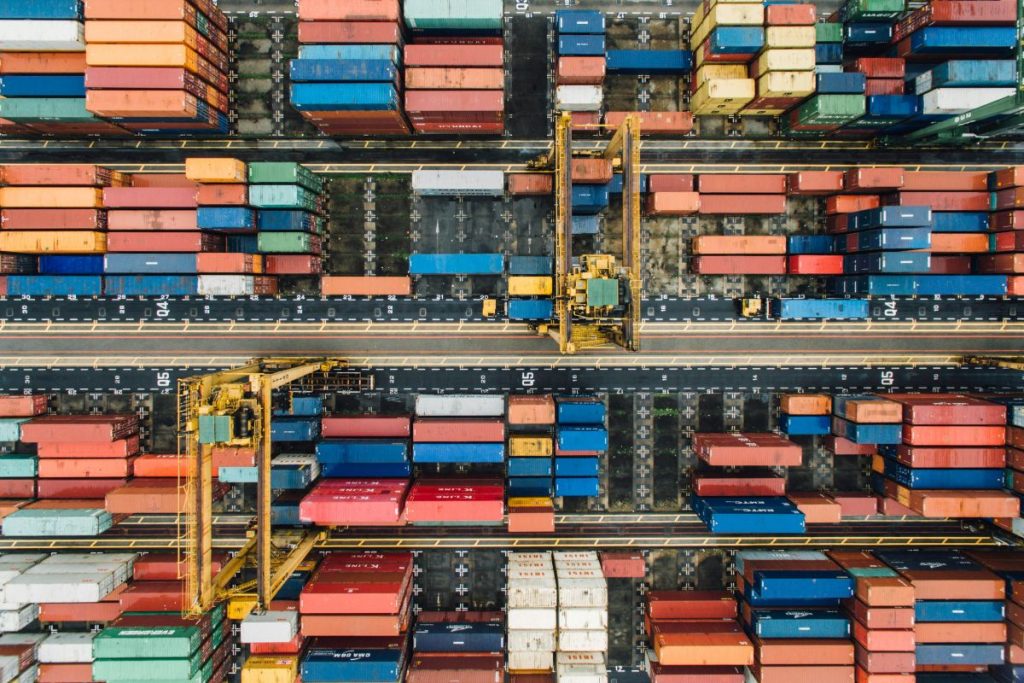Beyond basic visibility, integrated platforms are driving smarter decisions, enhancing security, and supporting sustainability goals.
From Visibility to Intelligence: A Fundamental Shift
In a global market rife with disruptions, real-time visibility into supply chain operations is no longer a competitive advantage — it’s an operational necessity. Yet, knowing the location of shipments is just the beginning. The real value lies in transforming this raw data into actionable intelligence. Modern logistics platforms provide the insights supply chain leaders need to mitigate risks, optimize operations, and meet evolving demands.
Integrated platforms harness real-time data for predictive insights, enabling accurate ETAs, streamlined milestone management, and comprehensive sustainability reporting. However, the opportunity for digital transformation remains vast. Recent research from the Transport Exchange Group (TEG) reveals that only 33% of third-party logistics providers (3PLs) leverage e-sourcing technology — a gap that forward-thinking companies can capitalize on.
Strengthening Security in Collaborative Supply Chains
With supply chains becoming more interconnected, security risks have grown. Fraudulent activities often exploit the collaborative nature of logistics. To combat this, digital identity verification is emerging as a key safeguard. Through biometric authentication, QR-coded identities, and checkpoint verifications, companies can ensure that loads are assigned to authorized drivers, drastically reducing fraud and theft.
These security measures also build trust across logistics networks. By implementing digital verification protocols, businesses can protect assets, streamline operations, and improve carrier accountability.
Turning Data Into a Strategic Advantage
Modern platforms go beyond location tracking to deliver real-time operational insights. Carriers can continuously update their status — whether they’re on a job, available, or returning home. This real-time visibility allows logistics managers to allocate resources more efficiently.
Intelligent load-matching algorithms enhance this capability. By automatically notifying carriers within a designated radius, companies can minimize empty runs, reduce fuel consumption, and improve delivery times. This shift from reactive to proactive operations unlocks significant cost savings and operational resilience.
Sustainability Through Smarter Decisions
As businesses face mounting pressure to reduce emissions, logistics intelligence plays a pivotal role in achieving sustainability goals. By integrating real-time data with vehicle compliance information, platforms can calculate Scope 3 emissions with precision.
This insight allows companies to make strategic decisions — such as utilizing carriers with empty return loads or optimizing routes to reduce carbon footprints. With two-thirds of 3PLs identifying sustainability as a top procurement challenge, the ability to provide transparent emissions data is becoming a valuable differentiator.
The New Standard for B2B Visibility
Consumer expectations for visibility have extended into the B2B realm. Leading logistics platforms now offer e-commerce-like tracking experiences, providing seamless visibility across transportation modes.
By integrating telematics data or mobile app updates directly into enterprise customer portals, companies can proactively manage delays and offer customers greater transparency. This enhanced visibility strengthens partnerships and improves service levels, particularly in sectors with complex shipping needs.
The Role of Freight Audit in Intelligent Operations
Freight audit automation is a critical component of modern logistics intelligence. By replacing manual reconciliation processes with AI-driven tools, companies gain clear visibility into transportation costs. Discrepancies are quickly identified and resolved, driving both accuracy and cost savings.
Furthermore, automated audits provide greater transaction transparency, improving trust and collaboration between shippers and carriers. Businesses that integrate freight audit systems within their platforms can reduce unnecessary spending and enhance financial visibility.
The Future of Supply Chain Intelligence
Supply chain intelligence is no longer an aspirational goal; it’s a fundamental requirement for businesses navigating today’s unpredictable environment. Companies that leverage modern logistics platforms will gain a decisive edge through lower costs, optimized carrier utilization, enhanced security, and verifiable sustainability improvements.
However, supply chain intelligence is not solely a technological pursuit. Organizations that succeed will integrate AI-driven insights with human expertise, building collaborative ecosystems that thrive on data-informed decision-making. The most effective leaders will foster cross-functional alignment between logistics, procurement, and operations teams, ensuring that insights are actionable and tied to strategic objectives.
Additionally, companies that embrace predictive analytics will develop resilience by proactively identifying emerging risks. Platforms capable of real-time scenario modeling and adaptive routing will help mitigate disruptions, while continuous learning algorithms will refine decision-making over time. Businesses can also leverage supply chain intelligence to uncover new revenue opportunities, optimize inventory management, and enhance supplier collaboration.
As organizations become more reliant on data-driven operations, maintaining robust data governance will be crucial. Transparent data management practices ensure accuracy, prevent bias, and support regulatory compliance. Those that establish strong governance frameworks will build trust across their ecosystems, further strengthening supplier and customer relationships.
In a landscape of constant change, the companies that treat supply chain intelligence as a strategic asset rather than a technical upgrade will stand apart. By integrating technology, human insight, and sound governance, they will drive operational excellence, resilience, and long-term growth.



